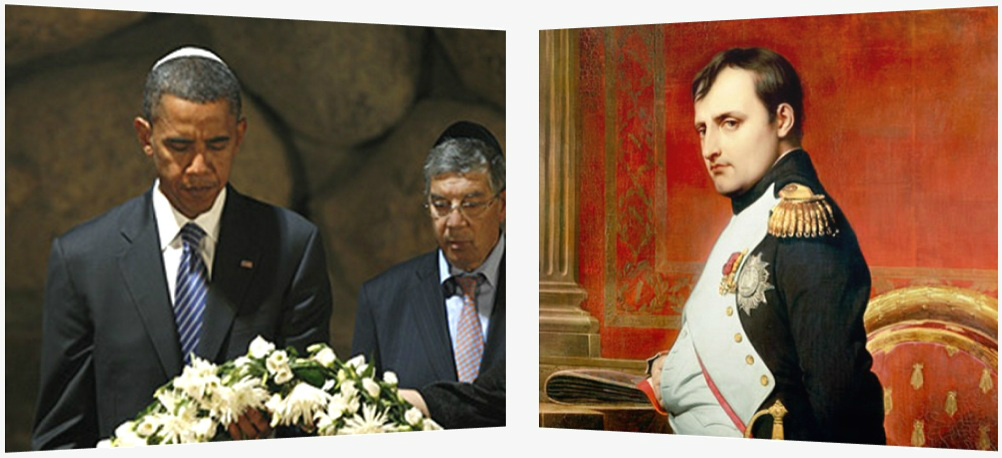"What then is, generally speaking, the
truth of history? A fable agreed upon."
– Napoleon
Amazing quote on how authorised history
is always a fable, made on November 20,
1816,
when Napoleon was being held prisoner by
the British on St. Helena in the South
Atlantic:
"It must be
admitted, my dear Las
Cases, it
is most difficult to obtain absolute
certainties for the purposes of history.
Fortunately it is, in general, more a
matter of mere curiosity than or real
importance. There are so many kinds of
truth! The truth which Fouche, or other
intriguers of his stamp, will tell, for
instance ; even that which many very
honest people may tell, will, in some
cases, differ essentially from the truth
which I may relate. The
truth of history, so much in request, to
which every body eagerly appeals, is too
often but a word. At
the time of the events, during the heat
of conflicting passions, it cannot exist
; and if, at a later period, all parties
are agreed respecting it, it is because
those persons who were interested in the
events, those who might be able to
contradict what is asserted, are no
more. What then is, generally speaking,
the truth of history? A fable agreed
upon. As it has been
very ingeniously remarked, there are, in
these matters, two essential points,
very distinct from each other : the
postitive facts, and the moral
intentions. With respect to the positive
facts, it would seem that they ought to
be incontrovertible ; yet you
will not find two accounts agreeing
together in relating the same fact :
some have remained contested points to
this day, and will ever remain so. With
regard to moral intentions, how shall we
judge of them, even admitting the
candour of those who relate events? And
what will be the case if the narrators
be not sincere, or if they should be
actuated by interested or passions? I
have given an order, but who was able to
read my thoughts, my real intentions?
Yet every one will take up that order,
and measure it according to his own
scale, or adapt it to his own plans or
system. See the
different colourings that will be given
to it by the intriguer, whose plans it
disturbs or favours : see how he will
distort it. The man who
assumes importance, to whom the
ministers or the sovereign may have
hinted something in confidence on the
subject, will do the same thing ; as
will the numerous idlers of the palance,
who, having nothing better to do than to
listen under windows, and invent when
they have not heard. And
each person will be so certain of what
he tells! and the inferior classes of
people, who will have received their
information from these privileged
individuals, will be so certain, in
their turn, of its correctness! and then
memoirs are digested, memoranda
are written, witticism and anecdotes are
circulated ; and of such materials is
history composed! ... here
again we have the admitted fable, which
will be called history. Nor can it be
otherwise. It is true that as there are
many, they will be far from agreeing
together."
Las
Cases, Emmanuel-Auguste-Dieudonné. Mémorial
de Sainte Hélène: Journal of the Private
Life and Conversations
of the Emperor Napoleon at Saint Helena,
Volume 4. London: Henry Colburn & Co.
1823.
pp.251-252
& 256.
SEE ALSO:



































